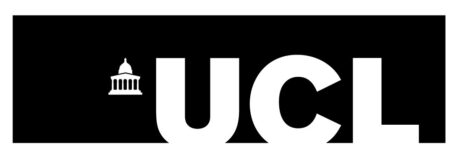UCLB News
The appliance of science
29 September 2008

Biotechnology is just one area where London’s universities are leading innovation by working alongside business. (From the Sunday Times, October 21, 2007)
The biotechnology and life science sector is at the heart of the capital’s knowledge economy, according to financiers, technology companies and academics. London First, a business campaign group, says the city is home to more than 100 companies in the field and that its higher education institutions and healthcare sector generate £1.1 billion of income from grants, awards and industry contracts.
Mark McBride, vice-president of technology transfer company Utek, says a handful of life science companies started by academics and supported by university “incubators” serve as role models for researchers looking to start their own companies: “Groups such as the London Development Agency have very wisely focused on life science as a means of attracting other sectors.”
Arrow Therapeutics, which specialises in developing antiviral drugs for conditions such as hepatitis C, was founded by its CEO, Ken Powell. It grew out of research he was involved with at University College London (UCL) and was recently bought by AstraZeneca for $150m (£73m), but is still operating as an independent company, in Southwark.
Proximagen was founded by another academic, Professor Peter Jenner, a specialist in neurodegenerative diseases at King’s College London. The AIM-listed company, with a market capitalisation of £19.4m, provides laboratory services to other companies while its research programmes develop drugs to tackle Parkinson’s disease and Alzheimer’s. The sector’s success is in large part down to the strength of universities such as Imperial College, UCL, Queen Mary’s and King’s College as well as specialist institutions including the Institute of Cancer Research. These attract high-calibre UK and international students and thereby a pool of skilled labour. “Once you have built a skilled and loyal staff in greater London, you want to hang on to them for dear life,” says McBride.
Life science is by no means the only game in town. UCL’s school of architecture, for instance, has engendered Space Syntax, an urban planning and architectural consultancy based on theories and software developed by Professor Bill Hillier. The software predicts how people will move around developments or within buildings. Architects, planners and police forces use it to predict how safe those environments will be.
The £2m consultancy, based in Spitalfields, is run by Tim Stonor, a former masters student of Hillier’s. There is still a strong relationship: research students take up part-time positions at Space Syntax and staff lecture at UCL.
Telecoms, media and other creative sector companies also have a firm footing in the capital’s knowledge economy. Doug Richard, entrepreneur and chairman of research organisation Library House, says simply that “London is hot” – one of the world’s most vibrant media and creative centres. “There’s real strength in the underlying traditional media industry as well as in new areas such as intranet TV, web 2.0 and mobile telephone businesses.”
According to Library House, London-based firms attracted half of all European venture capital funding for media technology in the first half of last year. Richard says most of the innovation comes not directly from universities but from traditional media companies: “It’s a myth that innovation comes out of universities. Much of it is coming out of the industry itself.”
Mind over matter
Founded by two brothers, deltaDOT illustrates London’s strength as a breeding ground for life science companies. The pair started mulling over a key problem for biologists – the time it takes to analyse viruses, proteins and other biological material – during their Christmas dinner in 1996.
By combining their expertise, Dr John Hassard, 51, a particle physicist and reader at Imperial College London (ICL), and Dr Stuart Hassard, 46, a biologist based at Cambridge University at the time, came up with a device that enables technicians to analyse biological matter without attaching coloured or radioactive tags. Materials can be analysed and vaccines and drugs developed much more quickly. The Pentagon’s research arm is interested in the speed with which the biotool, called Peregrine, can help vaccine development.
DeltaDOT is the first investment for the London Technology Fund, a government-backed equity fund, and is generating revenues of £1.7m with a projected turnover of £5.6m for 2008.
The firm’s CEO is Dr Anthony Baxter, 48, a scientist and serial entrepreneur, who says its success is a measure of how London has become a hub for science-based business. With laboratory and office space provided by ICL, deltaDOT can take advantage of highly skilled scientists based in the capital. “We have 26 staff and 24 of them live in central London. This company simply wouldn’t exist without them,” says Baxter.
Further Information:
For further information about the exploitation of innovation and technology licensing opportunities available from UCL, contact UCL Business on 0207 679 9000